![Carolina Herrera Bad Boy Review: Does It Last Longer? [2024]](https://bestperfumes.reviews/wp-content/uploads/2021/10/CAROLINA-HERRERA-BAD-BOY-Review-150x150.jpeg)
How To Choose A Good Perfume – A Detailed Guide 2024

How to choose a good perfume. You may wonder why there is an article on how you can choose the best perfume for any kind of occassion.
It may surprise you to know that many are yet to understand that wearing perfume is art, and a lot has to be put into consideration before making a choice.
Wearing perfume is totally a personal thing. Why picking a good perfume is a huge task is because there are so many out there in the market. However, if you do not know about your body type, you may end up picking a perfume that wouldn’t smell well on you.
What smells nice on your friend, colleague, or spouse may in turn not smell good on you, not because the perfume is bad, but because of the differences in skin type or body chemistry. Hence, the reason you ought to consider certain factors before making that purchase.
Still don’t get it?
In a nutshell, it means that for a perfume to go well on you, you need to know the type of skin you have, whether dry or oily. For the latter, you wouldn’t need much perfume for positive impact, and the scent will last for long on your skin.
Here comes the big question. How do I get to choose the right perfume?
Well, it is unlike picking the right perfume from the store that could be challenging. In this case, it is very simple and requires little patience. Firstly, knowing your skin type or body chemistry goes a long way.
The role of your body chemistry, as well as heat, the oils used for making the perfumes, and even the bacteria resident on your skin, cannot be over-emphasized. They all affect how the perfume diffuses on you.
During the heat periods, scents tend to project well, and our olfactory sense performs better too. Hence, the reason we have perfumes for the summer, and winter seasons. The duration of the perfume on you is also determined by these factors. However, these vary from persons involved, and also the time of the year.
1. The Skin Type
Previously stated, there are two types of skin – the oily, and the dry skin.
a. The Oily Skin
If your skin does not yearn for moisturizer all the time, then, you know you have oily skin.
What makes up the skin are sebaceous glands, microscopic in nature. They are the gland responsible for the excreting of sebum. This excreted sebum finds its way onto the skin’s surface through the hair follicles.
Our skin is either oily or not oily, is because of the sebum. Then, the type of foods we eat, lifestyle, stress levels, and overall health inclusive, affects how this oily substance, sebum smells. The smell of this oil is individually distinct. So, you can imagine the end result when it mixes with your sweat and perfume. That being said, if your skin is on the oily side of the spectrum, then, the perfume is very much likely to linger for long on you, and smell more intense when it mixes with your body aroma because the oil in your skin ignites a very strong reaction between the contents of the perfume, and your skin’s composition. It is very much recommended to go for light floral or citrus scents if you have oily skin because you wouldn’t smell too overpowering after application. However, if you prefer darker, or musk-based fragrances, then, a small amount is enough for you.
b. The Dry Skin
Having dry skin is not that bad either. One of the basic ingredients in perfumes is essential oils, and they are responsible for the perfume’s longevity. However, if your skin is dry, then, chances are perfumes wouldn’t last long on your skin. Reason being, due to your dry skin, the perfume will be quickly soaked up and vaporized, thereby leaving less fragrance and longevity on you. Hence, the reasons why stronger scents are recommended for people with dry skin.
2. Potential Hydrogen Level
The popular name known by many is pH Level. This is another very important factor you have to consider whenever you want to choose a perfume. For a fact, we all have a natural skin pH level. The question is, how balanced is it? If it is better balanced, the better the skin will absorb and maintain the scent.
You may want to know more about pH, and how to figure out that of your skin, right?
Well, as earlier stated, pH stands for “Potential Hydrogen.” It helps to define the acid-to-alkaline ratio of something – this case, your skin. On a scale of 1-14, if the pH of your skin is 1, then, it is considered most acidic. If it is 14, then, your skin is most alkaline.
According to experts, the ideal pH level for skin is 7. Anything above this, is considered alkaline, meaning that your skin is very dry, and sensitive. Research has it that, persons with higher pH level tend to suffer from eczema. Their skin is also prone to wrinkles, and sagging. Then, if your skin pH level is below the normal balance, you are likely to have an acidic skin. This can cause you to suffer from acne, breakouts, and inflammations. Summarily, it is unlikely to find skins that are too acidic.
If you want to know the pH level of your skin, the feel you get after using the shower should aid you. When you are done with the showers, and your skin feels smooth and soft, then, it means the pH level of your skin is in good condition. If it feels tight and dry, then, your skin pH level is alkaline. However, if after you cleanse it, and it feels oily, then, your skin is slightly acidic.
You have to ensure that you moisturize every day, and use sunscreen when necessary if you have a dry skin and you want perfumes to cling on to it, and last long too. Finally, if you suffer from any skin issues, make sure you employ the services of a qualified dermatologist for solution.
3. Body Heat/Temperature
This might sound weird to some, but it probably one to the factors to pay attention to before choosing the right perfume for yourself. As the name implies, it is not the temperature you check with a clinical thermometer but the basal body temperature, also known as body heat. That is, your skin, does it normally feel warm to touch or cold to touch? If the former is the case, then perfumes will sit long enough on you, but otherwise for people with colder skin.
4. Choice of Preference
We can’t help but admit that personal preference also plays a positive role in choosing the right perfume.
One of the best ways to find out if a perfume suits your taste is to have a little spritz on your body. When you do so, try to walk about for few minutes in order to allow the scent mix with your body chemistry. After that, if you find the smell pleasant, then, it is probably a good option for you.
Lastly, you have to find time to read through the contents of the perfume to enable you learn about the chemical compositions if present as well as its notes before making your final decision.
Understanding The Fragrance Notes
Focusing on the type of notes, and fragrances that smell great on your skin will help you narrow down the type of perfumes to lean towards.
Here is what you need to know about fragrance notes. There are 3 classes of notes that sum up a perfume. The notes are: Top/Head notes, Heart/Middle/Centre notes, and Base notes.
- Top Notes
These are the scents, usually sharp and volatile you get when you first apply the perfume. After a few minutes, the notes usually evaporate.
- Heart Notes
Just before the top notes fade away, the next notes to follow suit are the heart notes. They are termed “heart” of the aroma, and are usually delicate. These notes mix together with the base notes, to release pleasant smell over time. They last longer on the skin than the top notes.
- Base Notes
You find these notes at the dry down of the perfume. The notes are heavy, and big molecules that slowly evaporate. They are partially responsible for the longevity of the perfumes based on their compositions. They can linger for over 24 hours on the skin. It is no doubt that they give the perfume the rich and deep character it possesses.
Understanding Fragrance Concentration
Fragrance is a unisex, conventional term used for perfume. It comes in numerous types, and is called various names but for the most part, falls into these classifications. There are four levels of fragrance concentrations. The higher the level of the concentration, the pricier the perfumes get as well.
- Parfum: This has the highest concentration level, say about 20-30% of perfume essence. It is slightly oilier, and of course, the most expensive of all fragrances. Also worthy of note is its longevity. The longevity is overly impressive as a single spritz of this on your wrists and pulse points can last for over 24 hours.
- Perfume (Eau de Parfum): This is the next but lower level of concentration in line after the Parfum. It is commonly used to describe both the male and female products as it is genderless. The perfume essence contained in it is about 15-20%. The longevity is for about 5 to 8 hours.
- Toilette (Eau de Toilette): The third lower level after the Eau de Parfum. It is on the affordable side, and very common to find in stores. The concentration level is about 5-15% of pure perfume essence. The longevity is for about 3 hours. Thus, requires intermittent reapplication throughout the day to get it to last long.
- Cologne (Eau de Cologne): This is the fourth in line and has the lowest fragrance concentration. It is mostly used in North America for male scents. The scents are somewhat light, fruity, and fresh, containing about 2-4% of perfume oils dissolved in alcohol and water. Ideally, fit for persons that are still very young. The longevity is for about 2 hours. Reapplication is also required where necessary.
- Eau Fraiche: The very last and most unpopular. Contains about 1-3% perfume oil, and it lasts for not more than an hour.
Understanding Fragrance Categories/Families
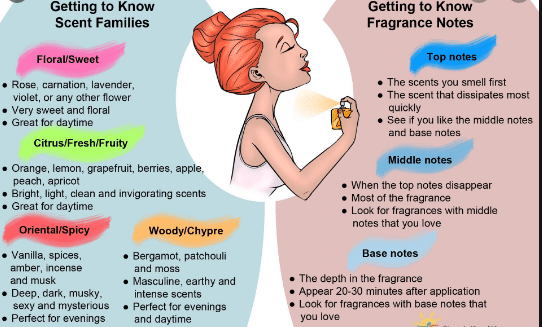
There are four major categories of fragrances, and this is based on their notes. Also, in-between are sub-categories. Floral, Oriental, Woody, and Fresh are the major categories. This came into light with the help of the Fragrance Wheel. In 1992, perfume expert, Michael Edwards created the modern fragrance wheel which has been in use till today. Although it has evolved, considering the introduction of new fragrances, and how we perceive smell.
The Fragrance Wheel – Sub Groups
Below are some of the sub-groups, together with their main notes. Chances are you would be draw to certain scents instinctively, while others will make you grimace.
Floral – Fresh-cut flowers
- Soft Floral – Aldehydes and powdery notes
- Floral Oriental – Orange blossom and sweet spices
Oriental – Oriental resins
- Soft Oriental – Amber and Incense
- Woody Oriental – Sandalwood and patchouli
Woods Main – Aromatic woods and vetiver
- Mossy Woods – Oak-moss and amber
- Dry Woods – Dry woods and leather
- Aromatic – Lavender and aromatic herbs
Fresh Notes
- Citrus – Bergamot and other citrus oils
- Water – Marine and aquatic notes
- Green – Galbanum and green notes
- Fruity – Berries and non-citrus fruits
Floral Scents: If the smell of flowers are you thing, then, this fragrance family is suitable for you. They smell like bouquets of flowers on opening, and even in the heat notes. Some perfumes rich in this are Japanese Cherry Blossom, My Burberry, Anais Anais, Jo Malone Nashi Bloom, and a host of others. You might want to try any of them!
- Soft Floral: The scent is a sub-category of the floral family. They are mostly soft, powdery, sweet, creamy, and light musky. Often contained in them are vanilla, delicate flowers, musks, and aldehydes. You can find this in perfumes like Chanel No 5, White Diamonds, Safari, Chloe, etc.
- Floral Oriental: The scents are made of sweet floral notes with fine spicy, smoky, balsamic or amber notes. The base notes are heavy and long lasting too. Some of the colognes you would find this are Desire by Dunhill, Midnight Heat by Beyonce, Dark Kiss, Velvet Rose and Oud by Jo Malone.
Oriental: If you love exotic scents that are zesty, sensual, warm, and rich, then these fragrance family is for you. They mostly contain resins, amber, and notes that are heavy. Examples are Bond No 9 Fire Island, Shalimar, One Gentleman – D&G, Tobacco Vanille – Tom Ford, and Passion.
- Soft Oriental: The scent is smooth, zesty, warm, and sensual. It is a softer, spicy version of oriental. You can get this in Bvlgari Jasmin Noir, Bleu de Chanel, and Oscar de la Renta.
- Woody Oriental: They usually contain oriental notes that are rich together with sandalwood, patchouli, cedar, or vetiver. The most common notes in this fragrance family are woods, and spices. Examples are SamSara, Burberry Brit, Back to Back – kilian, Bvlgari Black, and Desire.
Woods Main: Does the smell of freshly sanded wood and sawdust entice you? If yes, then this fragrance family is your go-to scents. The fragrance is natural, and simple, having few woodsy notes of sandalwood, vetiver, and cedar accompanied with citrus notes. Dunhill Fresh, Polo Supreme Oud, Tom Ford Grey Vetiver, Tom Ford Oud Wood, and Organza are some of the perfumes that are woody.
- Mossy Woods: They are sweet, sleek, and sometimes earthy with base notes that are mossy. You can find them in colognes like Hermes Terre D’Hermes, Prada L’Homme, Polo, Chanel No 19, and Sexy Ruby by Michael Kors.
- Dry Woods: Also known as leather fragrances. They usually contain tobacco or burnt wood, cedar notes, and share like characteristics with mossy woods fragrances but with a leathery and or smoky twist. Example of perfumes of such nature are Bvlgari Man in Black, D&G Velvet Exotic Leather, Tom Ford F*cking Fabulous, Tom Ford Tuscan Leather, John Varvatos, etc.
- Aromatic: You can’t help but like this fragrance family. The scents are clean, fresh, and contain notes of lavender, herbs, sweet spices, citrus, and oriental woods. Paco Rabanne, Bora Bora, Bleu de Chanel, Dior Sauvage, Jo Malone Wood Sage & Sea Salt, Creed Aventus, Creed Silver Mountain, Ed Hardy Skulls & Roses are some of the aromas of this nature.
Fresh (Citrus): This fragrance family is the most abundant in the fragrance world. They contain citrus notes of bergamot, lemon, orange, grapefruit, and mandarin. They are sometimes spicy, tangy, crisp, and tart. For the men, their fragrances are mostly paired with aromatic, citrusy notes while the female scents are usually paired with florals. You would find this feel in perfumes like Creed Virgin Island Water, Tom Ford Neroli Portofino, Chrome, Creed Royal Service, Green Tea by Elizabeth Arden, and Burberry Weekend.
- Water: Popular called aquatic notes. Water notes were predominant in the 90s. The ideas of these scents are motivated by scents of soft sea breeze, the fresh air that follows after a thunderstorm, and the fresh feeling that comes from a waterfall. The notes are mostly of aquatic nature. Examples of perfume you would find this feel are Cool Water by Davidoff, Chrome Sport, D&G L’Imperatrice, Acqua di Gio, Curve Appeal, Issey Miyake, Burberry Sport Ice, Nautica Oceans, James Bond 007 Ocean Royale, and Versace Bright Crystal.
- Green: If you find the smell of freshly-cut green grass pleasant and inviting, this fragrance family is for you. They contain prevalent green notes of grass, mint, basil, and other fresh leaves. Tom Ford Vert d’ Encens, Hugo, Escape, Polo Sport, 212 by Carolina Herera, Lucky you, Creed Green Irish Tweed are some of the perfumes with such fragrance.
- Fruity: The name alone tells a lot. The fragrance is appetizing. It makes you feel like to eat it. Contained in them are lots of fruity notes, some of which are peaches, pears, plums, berries, apples, and a host of others. You can imagine the feel! Yummy! You would find such scents in perfumes like Be Delicious by DKNY, Curve Kicks, My Burberry, Ralph Wild, Ed Hardy, Paris Hilton, and Polo Black.
ALSO SEE: 20 Best Perfume Stores Online
Conclusion
Having gone through this article, I believe you have learnt a few helpful things about perfumes.
It is no longer new that choice of perfume(s) is personal, and they can make or break your looks.
In a nutshell, before you make a purchase, be sure to try it out first by taking a sniff test or applying a little on your skin, and then wait few minutes to see how it goes.
If you find it comfortable and acceptable to you skin type and body chemistry, then, you should go for it. Remember, only you alone know what is right for you.
Do not go for scents because it smells good on your friend or colleague because it might end up not smelling nice on you due to the differences in the skin type and chemical buildup of the body.
Lastly, once you come to discover or know your body type, scent families, and concentration levels, you would have a whole lot of beautiful fragrances to enjoy!


![Chanel No. 5 Review: Does It Smell Good And Last Longer? [2024]](https://bestperfumes.reviews/wp-content/uploads/2021/10/Chanel-No-5-Review-440x264.jpeg)
![Dolce and Gabbana Velvet Rose Review: Is it a Quality Perfume? [2024]](https://bestperfumes.reviews/wp-content/uploads/2021/03/Dolce-and-Gabbana-Velvet-Rose-150x150.png)
![Dolce and Gabbana Velvet Pure Review: Does it Smell Good? [2024]](https://bestperfumes.reviews/wp-content/uploads/2021/03/Dolce-and-Gabbana-Velvet-Pure-Review.png)
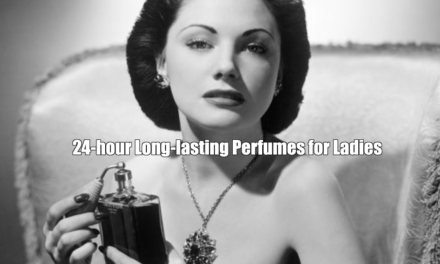
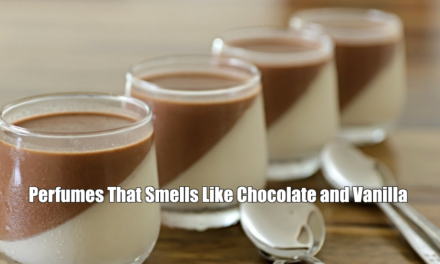
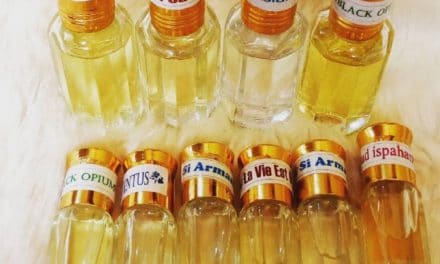
![How to Make Perfume with Essential Oils: A Complete Step By Step Guide [2024]](https://bestperfumes.reviews/wp-content/uploads/2021/11/How-to-Make-Perfume-With-Essential-Oils.jpeg)
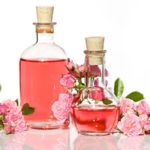
![Why Perfumes Fades So Quickly On the Body [2024]](https://bestperfumes.reviews/wp-content/uploads/2021/01/Why-Perfumes-Fades-So-Quickly-150x150.png)
![The Ingredients For Making Perfume of High Quality [2024]](https://bestperfumes.reviews/wp-content/uploads/2021/01/Ingredients-For-Making-Perfumes.jpg-150x150.png)